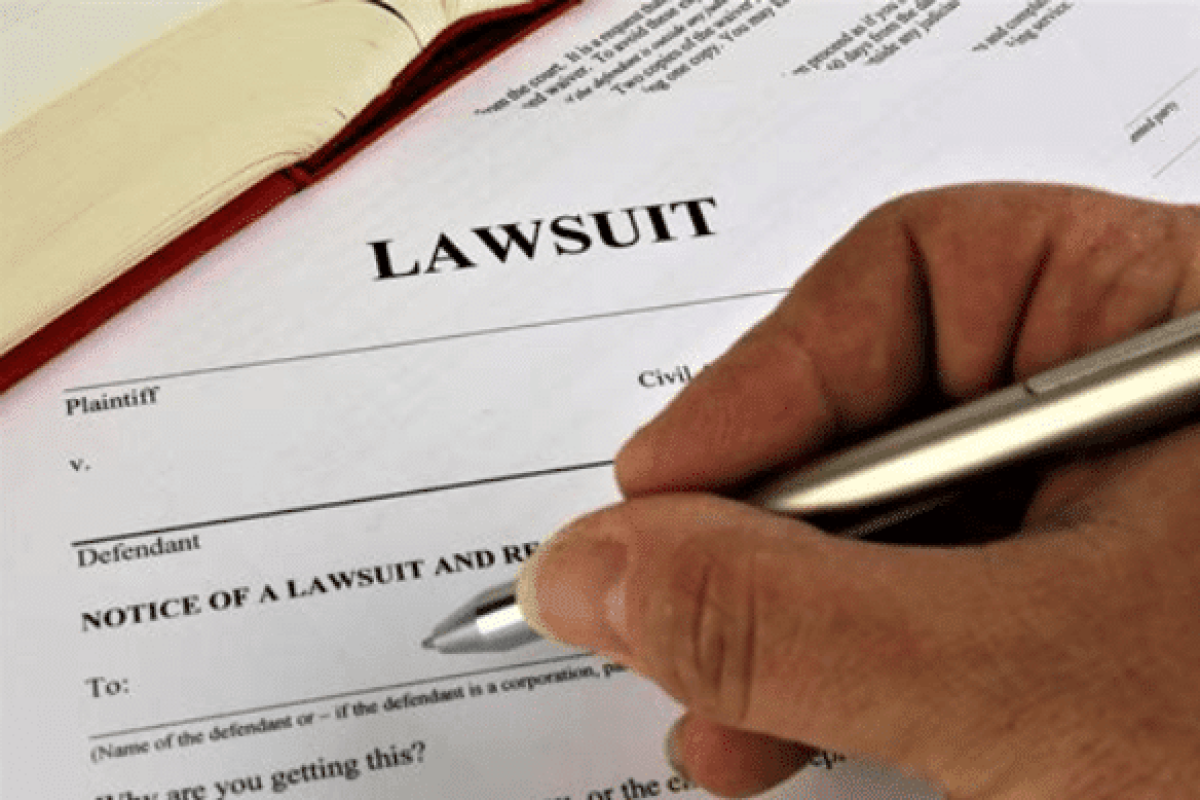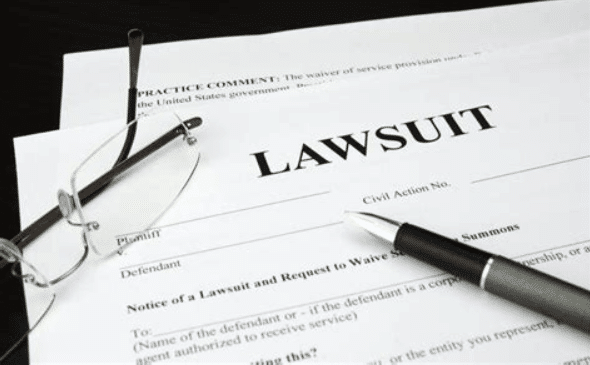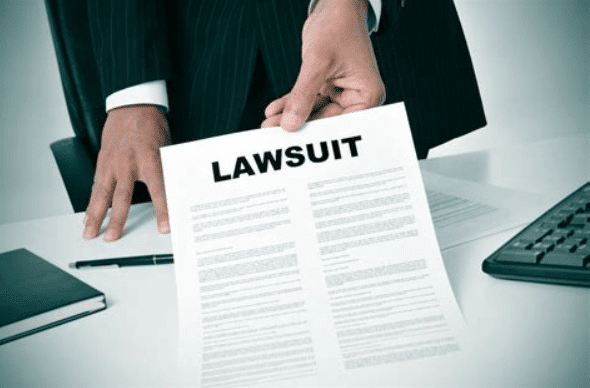If you’re facing a debt lawsuit in Pennsylvania, accessing your records is crucial, and you have options to do so either by visiting the courthouse where the lawsuit was filed or online. Utilizing ZumaZip.com can significantly enhance your chances of success by assisting you in drafting and filing an Answer document in response to the lawsuit, increasing your odds of winning by 7 times.
The prospect of creditors gaining access to your bank account or the court allowing them to garnish your wages can be distressing. It’s a situation many consumers never anticipated when taking out a loan or signing up for a credit card. Unexpected emergencies, job loss, or overspending can lead individuals into debt.
Fortunately, Pennsylvania offers a fighting chance in pending cases by providing quick and convenient access to court records online or through visits to the relevant courthouse. You have a constitutional right to view your records and make copies for personal use. Today, we’ll guide you through navigating the Pennsylvania court system and accessing your court records.
However, before proceeding, it’s essential to ensure you’ve filed your Answer. If not, it’s crucial to do so immediately.
Pennsylvania court structure explained
When you understand which court has jurisdiction over your case, you’ll know which court to call to check your case status or where to attend any scheduled hearings or trials. Since debt collection lawsuits are considered civil cases, we will focus on Pennsylvania’s civil court structure in this section.
Pennsylvania has one of the oldest Unified Judicial Systems in the United States. It began as local courts before the 1700s to the current automated statewide judicial system. The courts are divided into four levels: Highest appellate court, intermediate appellate courts, court of common pleas,, and the minor courts. Let’s discuss each briefly:
- Supreme Court: This is the state’s highest court and dictates how the entire judicial system should operate. The justices hear appeals from the lower courts regarding various matters. They also intervene in the lower courts’ proceedings when requested.
- Superior Court: This is one of the two intermediate appellate courts with discretionary jurisdiction over most cases brought before them. They do not preside over new cases but review decisions made by the trial judges from the lower-level courts. Parties can further appeal to the Supreme Court, but the highest court rarely disagrees with this court’s judgment.
- Commonwealth Court: Unique to Pennsylvania, this is a second intermediate court that presides over appeal matters involving regulatory agencies and local and state governments. They also act as a trial court when the commonwealth is sued or needs to sue an individual or organization.
- Courts of Common Pleas: These courts are the trial courts in the state with general jurisdiction. They are organized into 60 judicial districts, each covering one county, apart from seven that cover two each. They hear various civil matters, including original civil cases and cases appealed from the minor courts.
- Minor Courts: Also called Special Court, this is the first contact citizens have with the judicial system. Courts in this category are the Magisterial District Courts and the Philadelphia Municipal Court. These courts preside over small claims of up to $12,000.
Your debt collection case will either be heard by the Court of Common Pleas, Magisterial District Court, or Municipal Court, depending on the amount involved and where you live.
How to find your case number in Pennsylvania
A case number is a combination of letters, characters, and digits that help to identify each matter filed with the courts. Once the court accepts to process and hear your matter, you automatically receive the case number in the lawsuit. Court clerks can use the following information to derive a case number:
- The year the case was filed
- The court or case type
- The judge’s or judicial officer’s initials
- The following number from your case
If you don’t know your case number, you can make a trip to the courthouse and get assistance from the court clerk by submitting an official request. Alternatively, you can go to the Pennsylvania online platform and use the available options to search for a case.
How to access your court records in Pennsylvania
Accessing court records has helped consumers avoid plunging deeper into debt after using the information to strike a deal with the collection agency or get a favorable judgment. Pennsylvania makes accessing case documents relatively easy whether you get them online or by visiting the courthouse.
Access your court records in-person
Going to the courthouse to get your documents is an option if you live within minutes of the courthouse or prefer talking to the court clerk face-to-face for additional help. The first step is to find out the court’s location using this Pennsylvania courts directory. Hover over the map until you find your county, and click on it. You’ll be redirected to a page containing the contact information for the courthouse, including the physical address.
At the courthouse, you’ll be asked to fill out a written request giving vital information that will be used to locate the records in the system. Some courthouses provide self-service terminals for individuals to search the record. You may be charged a small fee for the services provided.
Let’s explore an example.
Example: Sean had a debt of $7,645 with GABS Robins as a result of identity theft. Sean tried to explain his situation to GABS agents, but they didn’t buy his story. Instead, they delivered a lawsuit letter to his office. He immediately sought help from a debt management counselor, and they advised him to respond to the lawsuit immediately and look for evidence to present it in court. Sean responded using the ZumaZip Answer document and began preparing for court by gathering important documents. Part of these documents included obtaining his court records. Hence, he looked for Elk County’s courthouse on the Pennsylvania website and then visited the court clerk for assistance. He paid $4.50 for the copies. After submitting his Answer and getting copies, Sean stayed update on his case by searching the case status online.
Access your court records online
Online access is the simplest and quickest way to find your records if you know your case number. The Unified Judicial System of Pennsylvania Web Portal allows its citizen to have instant access to case records using the following options for civil cases:
- Case number
- Participants name
- Attorneys name
- Organizations name
- Date filed
The result will bring your case records only or with several others, depending on the accuracy of the information entered. Look for your records on the result list, or use another option that narrows your search further. For a comprehensive case file, you may need to visit the courthouse.
ZumaZip can help you fight off debt collectors in Pennsylvania
At ZumaZip, we offer a range of documents that can help you deal with your debt situation. For instance, our Debt Validation Letter requests the creditors to verify the debt is yours before they file a lawsuit; the Answer helps you respond to the lawsuit; our Motion to Compel Arbitration forces a lawsuit out of court, and our ZumaZip Settle Tool requests the creditor to settle out of court. Talk to us for further guidance on which document suits your needs.
What is ZumaZip?
ZumaZip is a convenient solution designed to streamline your response to a debt collection lawsuit. Here’s a breakdown of what you can expect when you use ZumaZip:
Firstly, you’ll access our user-friendly web application, which guides you through the process step by step. You’ll be prompted to answer a series of questions related to your specific situation. Once you’ve completed the questionnaire, you have the option to either print out the finalized forms and mail them to the appropriate courts yourself, or you can opt to utilize ZumaZip’s services to file them on your behalf. Additionally, if you choose this option, an attorney will review your document for added peace of mind.
If you’re seeking guidance on how to effectively respond to a debt collection lawsuit, ZumaZip can provide the assistance you need. Feel free to explore our FAQs for more information on what ZumaZip has to offer.
What if I haven’t been sued yet?
If you’ve only received a collections notice, but not a lawsuit, the best way to respond is with a Debt Validation Letter. When a debt collector contacts you in any way, whether it’s by phone or mail, you can respond by formally requesting a debt validation with a Debt Validation Letter . This letter notifies the collector that you dispute the debt and forces them to provide proof you owe the debt. They can’t call you or continue collecting until they provide validation of the debt. This flowchart shows how you can use a Debt Validation Letter to win.
Get started with a Debt Validation Letter here.
How to Answer a Summons for debt collection in all 50 states
Here’s a list of guides on how to respond to a debt collection lawsuit in each state:
- Alabama
- Alaska
- Arizona
- Arkansas
- California
- Colorado
- Connecticut
- Delaware
- Florida
- Georgia
- Hawaii
- Idaho
- Illinois
- Indiana
- Iowa
- Kansas
- Kentucky
- Louisiana
- Maine
- Maryland
- Massachusetts
- Michigan
- Minnesota
- Mississippi
- Missouri
- Montana
- Nebraska
- Nevada
- New Hampshire
- New Jersey
- New Mexico
- New York
- North Carolina
- North Dakota
- Ohio
- Oklahoma
- Oregon
- Pennsylvania
- Rhode Island
- South Carolina
- South Dakota
- Tennessee
- Texas
- Utah
- Vermont; Vermont (Small Claims court)
- Virginia
- Washington
- West Virginia
- Wisconsin
- Wyoming
Guides on how to beat every debt collector
Hey there! Facing off against a debt collector can feel like a daunting challenge, but fear not! We’re here to help you navigate through it all with our handy guides designed to assist you in beating every debt collector you encounter. Whether you’re facing a new lawsuit or dealing with a persistent collector, we’ve got your back. Stay positive, stay informed, and let’s tackle this together!
- Absolute Resolutions Investments LLC
- Accredited Collection Services
- Alliance One
- Amcol Clmbia
- American Recovery Service
- Asset Acceptance LLC
- Asset Recovery Solutions
- Associated Credit Services
- Autovest LLC
- Cach LLC
- Cavalry SPV I LLC
- Cerastes LLC
- Colinfobur
- Covington Credit
- Crown Asset Management
- CTC Debt Collector
- Cypress Financial Recoveries
- Delanor Kemper & Associates
- Eagle Loan of Ohio
- Educap
- Estate Information Services
- FIA Card Services
- Forster & Garbus
- Freshview Solutions
- Fulton Friedman & Gullace LLP
- Harvest Credit Management
- Howard Lee Schiff
- Hudson & Keyse LLC
- Integras Capital Recovery LLC
- Javitch Block
- Jefferson Capital Systems LLC
- LVNV Funding
- Mannbracken
- Mariner Finance
- Medicredit
- Michael J Adams PC
- Michael J Scott
- Midland Funding LLC
- Mullooly, Jeffrey, Rooney & Flynn
- Mountain Land Collections
- MRS Associates
- National Collegiate Trust
- Nationstar Foreclosure
- Northstar Capital Acquisition
- NCEP LLC
- NRC Collection Agency
- OneMain Financial
- Palisades Collection LLC
- Pallida LLC
- Paragon Revenue Group
- Pinnacle Collections Agency
- PMAB LLC
- Portfolio Recovery Associates
- Provest Law
- PYOD LLC
- Reunion Student Loan Finance Corporation
- Revenue Group
- Regents and Associates
- RSIEH
- Salander Enterprises LLC
- Second Round Sub LLC
- Security Credit Services
- Sherman Financial Group
- Suttell and Hammer
- T-Mobile
- Transworld Systems
- Tulsa Teachers Credit Union
- UCB Collection
- Velo Law Office
- Velocity Investments
- Waypoint Resource Group
- Weinberg and Associates
- Wolpoff & Abramson
Settle your medical debt
Having a health challenge is stressful, but dealing medical debt on top of it is overwhelming. Here are some resources on how to manage medical debt.
- Am I Responsible for My Spouse’s Medical Debt?
- Do I Need a Lawyer for Medical Bills?
- Do I Need a Lawyer to Fight Medical Bill Debt?
- Does Bankruptcy Clear Medical Debt?
- How Much Do Collection Agencies Pay for Medical Debt?
- How to Find Medical Debt Forgiveness Programs
- Is There a Statute of Limitations on Medical Bills?
- Medical Debt Statute of Limitations by State
- Summoned to Court for Medical Bills — What Do I Do?
- Summoned to Court for Medical Bills? What to Do Next
Stop calls from Debt Collectors
Do you keep getting calls from an unknown number, only to realize that it’s a debt collector on the other line? If you’ve been called by any of the following numbers, chances are you have collectors coming after you, and we’ll tell you how to stop them.
- 800-390-7584
- 800-289-8004
- 800-955-6600
- 877-366-0169
- 877-591-0747
- 800-278-2420
- 800-604-0064
- 800-846-6406
- 877-317-0948
- 888-899-4332
- 888-912-7925
- 202-367-9070
- 502-267-7522
Other wage garnishment resources
- Bank Account Garnishment and Liens in Texas
- Can I Stop Wage Garnishment?
- Can My Wife’s Bank Account Be Garnished for My Debt?
- Can Payday Loans Garnish Your Wages?
- Can pensions be garnished?
- Can Private Disability Payments Be Garnished?
- Can Social Security Disability Be Garnished?
- Can They Garnish Your Wages for Credit Card Debt?
- Can You Stop a Garnishment Once It Starts?
- Guide to Garnishment Limits by State
- How Can I Stop Wage Garnishments Immediately?
- How Long Before a Creditor Can Garnish Wages?
- How Long Does It Take to Get Garnished Wages Back?
- How to Fight a Wage Garnishment
- How to Prevent Wage Garnishment
- How to Stop a Garnishment
- How to Stop Social Security Wage Garnishment
- How to Stop Wage Garnishment — Everything You Need to Know
- New York Garnishment Laws – Overview
- Ohio Garnishment Laws — What They Say
- Wage Garnishment Lawyer
- What Is Wage Garnishment?
Guides on Arbitration
If the thought of going to court stresses you out, you’re not alone. Many Americans who are sued for credit card debt utilize a Motion to Compel Arbitration to push their case out of court and into arbitration.
Below are some resources on how to use an arbitration clause to your advantage and win a debt lawsuit.
- How Arbitration Works
- How to Find an Arbitration Clause in Your Credit Agreement
- How to Make a Motion to Compel Arbitration
- How to Make a Motion to Compel Arbitration in Florida
- How to Make a Motion to Compel Arbitration Without an Attorney
- How Credit Card Arbitration Works
- Motion to Compel Arbitration in California
- Sample Motion to Compel Arbitration
Federal Debt Collection Laws Can Protect You
Knowing your rights makes it easier to stand up for your rights. Below, we’ve compiled all our articles on federal debt collection laws that protect you from unfair practices.
- 15 USC 1692 Explained
- Does the Fair Credit Reporting Act Work in Florida?
- FDCPA Violations List
- How to File an FDCPA Complaint Against Your Debt Collector (Ultimate Guide)
- How to Make a Fair Debt Collection Practices Act Demand Letter
- How to Submit a Transunion Dispute
- How to Submit an Equifax Dispute
- How to Submit an Experian Dispute
- What Debt Collectors Cannot Do — FDCPA Explained
- What Does Account Information Disputed by Consumer Meets FCRA Requirements Mean?
- What does “meets FCRA requirements” mean?
- What does FCRA stand for?
- What is the Consumer Credit Protection Act
Resolve Your Debt with Your Creditor
Some creditors, banks, and lenders have an internal collections department. If they come after you for a debt, ZumaZip can still help you respond and resolve the debt. Here’s a list of guides on how to resolve debt with different creditors.
- American Express; American Express – Debt Collection
- Bank of America
- Barclay
- Best Buy Credit Card
- Capital One
- Chase
- Credit One Bank
- Old Navy Credit Card
- PayPal Synchrony Card
- Regional Finance
- Retailers National Bank
- Reunion Student Loan Finance Corporation
- SYNCB/PPEXTR
- Synchrony Bank
- Synchrony Walmart Card
- Target National Bank
- Webbank
- Wells Fargo
- Can I Pay My Original Creditor Instead of a Debt Collection Agency?
- Can I Settle a Debt with the Original Creditor?
Check the Status of Your Court Case
Don’t have time to go to your local courthouse to check the status of your case? We’ve created a guide on how to check the status of your case in every state, complete with online search tools and court directories.
- Alabama Court Case Search—Find Your Lawsuit
- Alaska Court Case Search — Find Your Lawsuit
- Arizona Court Case Search – Find Your Lawsuit
- Arkansas Court Case Search — Find Your Lawsuit
- California Court Case Search- Find Your Lawsuit
- Colorado Court Case Search — Find Your Lawsuit
- Connecticut Case Lookup — Find Your Court Case
- Delaware Court Case Search — Find Your Lawsuit
- Florida Court Case Search — Find Your Lawsuit
- Georgia Court Case Search — Find Your Lawsuit
- Hawaii Court Case Search — Find Your Lawsuit
- Idaho Court Case Search – Find Your Lawsuit
- Illinois Court Case Search — Find Your Lawsuit
- Indiana Court Case Search — Find Your Lawsuit
- Iowa Court Case Search — Find Your Lawsuit
- Kansas Court Case Search — Find Your Lawsuit
- Kentucky Court Case Search — Find Your Lawsuit
- Louisiana Court Case Search — Find Your Lawsuit
- Maine Court Case Search — Find Your Lawsuit
- Maryland Court Case Search — Find Your Lawsuit
- Massachusetts Court Case Search — Find Your Lawsuit
- Michigan Court Case Search — Find Your Lawsuit
- Minnesota Court Case Search — Find Your Lawsuit
- Mississippi Court Case Search — Find Your Lawsuit
- Missouri Court Case Search — Find Your Lawsuit
- Montana Court Case Search — Find Your Lawsuit
- Nebraska Court Case Search — Find Your Lawsuit
- Nevada Court Case Search — Find Your Lawsuit
- New Hampshire Court Case Search — Find Your Lawsuit
- New Jersey Court Case Search—Find Your Lawsuit
- New Mexico Court Case Search – Find Your Lawsuit
- New York Case Search — Find Your Lawsuit
- North Carolina Court Case Search — Find Your Lawsuit
- North Dakota Court Case Search — Find Your Lawsuit
- Ohio Court Case Search — Find Your Lawsuit
- Oklahoma Court Case Search — Find Your Lawsuit
- Oregon Court Case Search — Find Your Lawsuit
- Pennsylvania Court Case Search — Find Your Lawsuit
- Rhode Island Court Case Search — Find Your Lawsuit
- South Carolina Court Case Search — Find Your Lawsuit
- South Dakota Court Case Search — Find Your Lawsuit
- Tennessee Court Case Search — Find Your Lawsuit
- Texas Court Case Search — Find Your Lawsuit
- Utah Court Case Search — Find Your Lawsuit
- Vermont Court Case Search — Find Your Lawsuit
- Virginia Court Case Search — Find Your Lawsuit
- Washington Court Case Search — Find Your Lawsuit
- West Virginia Court Case Search — Find Your Lawsuit
- Wisconsin Court Case Search — Find Your Lawsuit
- Wyoming Court Case Search — Find Your Lawsuit


































